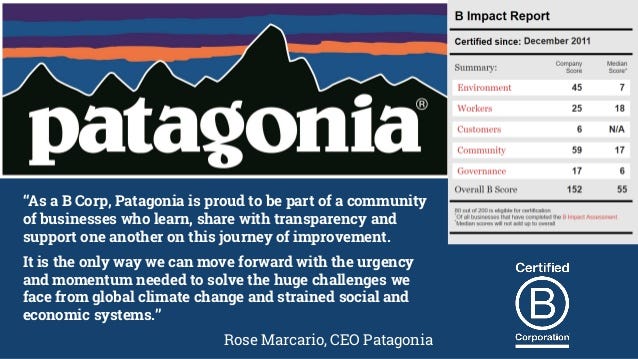It’s time to B better

Analysis
This article originally appeared in Mediatel.
A quick glance at the news in the marketing press tells you all you need to know about the current state of adland. Big, clumsy, efficiency-based media reviews and network agency consolidation. This all comes at a time of upheaval in the industry, unearthing underhand trading tactics, fixed markets, saturated levels of ad spend and a decline in long-term marketing ROI.
A recent exchange on Twitter painted a hilariously bleak picture of the future if we continue on this trajectory: “The year is 2038. There is one ad agency left: WPPublicisCom&IPGDentsuCorpCo. It slowly orbits the Earth in a space barge.”
It made me laugh loudly until it dawned on me that I was laughing because this cheery idea isn’t that far-fetched. Most markets have contracted into oligarchies, which has driven a level of competitive behaviour but has mostly resulted in poor value to the customer or end-user. It’s also resulting in people losing faith in traditional big business, leading them to seek brands and companies that offer them more.
For our part, the platforms we held up as digital media saviours have been exposed for having crappy metrics, abusing data and being weaponised with fake news — the Facebook to Fakebook syndrome. And here’s the extreme bit: a recent Harvard study showed that over half of 18–29 year olds actually reject capitalism. Well they probably don’t, they just dislike the majority of what they generally see or pay for.
It’s time to face the fact that business — and by extension brands — are no longer designed to face the unknown as they once were. The bias in skills of traditional business is now skewed to profit maximise but not to innovate, and its view of people (including employees) has grown increasingly psychotic. Same goes for the planet, which is possibly why our own conglomeratised barge will have to orbit in Space.
Business needs to change. We are in the midst of the fourth economic revolution, faster and bigger than the previous three. This covers a range of topics, but is dominated by the rise of an entrepreneurial economy collaboratively solving problems, growing markets and attracting investment. What sport star Rod Tidwell — in the movie Jerry Maguire, having screamed ‘show me the money’ repeatedly at his agent — goes on to describe as ‘the Quan — love, respect, community and the dollars too’.
Pretty hippy stuff, right? No. At the beginning of the year Larry Fink issued letters to over 1,000 CEOs demanding their companies look at positive impact alongside return on capital. His instructions clear: ‘be good with your company decisions, or else’. In case you don’t know who Larry Fink is, he’s the CEO of BlackRock, the largest investment fund in the world, with over $6 trillion in assets under management.
There are movements of companies already doing this. B Corporations, for example, are businesses run for the benefit of all stakeholders, as well as shareholders — that means employees, the communities they operate in and the planet are all in equal importance to profit. This forms part of their Articles of Association to create a ‘mission-lock’ for directors and management.
Patagonia is a long established B Corporation, alongside innovators such as Warby Parker, Belgium Brewing Company and Method (People Against Dirty). Brands are growing big by being better, but are also finding themselves particularly popular amongst a younger cohort. No surprise then that Unilever has been quietly buying them up — Pukka Herbs and Seventh Generation in 2017 joined their existing B Corp Ben & Jerry’s. Danone US became a B Corp at the beginning of the year and Coca-Cola’s Innocent drinks followed shortly after.

The motivations for designing a company this way are not altruistic. Many boast record levels of employee engagement, cultures in which innovation is inherent and natural and in which higher margins, growth and profits ensue.
Back to adland and the impending orbiting space barge. In this context, it’s lonely being the UK’s first and only creative agency to have B Corporation status. We have seen first-hand how a different operating system demands you to be better and do better. Earlier this year we positioned ourselves to have a primary focus on scale-up businesses with new and better ideas. Ventures against conformity, with real motive power to creatively grow brands that people not only buy, but buy into. Making sure they get heard and can defend themselves against counter measures from incumbents is critical.
It has impacted the way we work internally and with clients. When you think wider, you think more clearly about your audience, their lives and how to play a role that counts. No surprise that comes with new, more sustainable, growing revenue streams attached to it, as opposed to eeking out more and more through efficiencies using agency approaches that have had their day.
As movements like these grow in momentum across the media industry, we should see standards start to change and clients — big and small — responding to the fight back against the monolithic landscape of agencies and brands past. Most of all, to be part of a vibrant and innovative sector of the economy treating creativity as a power, not a process.
So, book your escape pods back to Earth and be part of business running on an operating system that’s fit for creating a future, not just defending the past. For adland it’s the right time to think about all kinds of other trajectories other than the one it is presently on.





